5 Benefits of a Kindness ‘Elf on the Shelf’ for a Child With Autism
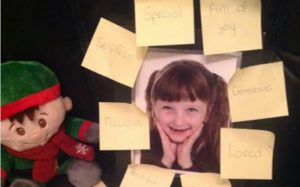 The latest Christmas tradition has seen elves taking over houses throughout the country. The story goes that Santa leaves one of his elves with a family to watch over the children and make sure they are behaving, with the theory that naughty children will get nothing for Christmas. The twist seems to be that the Elf himself gets up to mischief every night while the children sleep, much to the amusement of the children in the morning.
The latest Christmas tradition has seen elves taking over houses throughout the country. The story goes that Santa leaves one of his elves with a family to watch over the children and make sure they are behaving, with the theory that naughty children will get nothing for Christmas. The twist seems to be that the Elf himself gets up to mischief every night while the children sleep, much to the amusement of the children in the morning.
Unfortunately, there was no way my autistic children would cope with this. For one, my daughter would be traumatised by the thought of anyone watching her. Second, her non-verbal brother with severe autism is too often seen as “naughty” by others, and there was no way I wanted her thinking he would be getting nothing for Christmas. Lastly, neither of my children need any extra ideas for silly things to get up to, as they are never short of ideas themselves.
BUT my autistic daughter was so desperate to be part of this craze! I hated that she felt left out, as she experiences this exclusion often enough as it is. Therefore, I decided to use the latest trend to help her instead.
We had a visit this December from a loving and giving Elf who gives my daughter acts of kindness to do every day. She is loving it, her friends are loving it, and it has helped her so much. Here are five ways our kindness Elf on the Shelf has helped her so far:
1. Elf taught her a simple way to make a new friend.
The very first task Elf gave Naomi was to share a snack at school with someone. My daughter has huge anxiety and is selectively mute, but giving a little bar of chocolate to someone enabled her to be silently social. This helped her realise that reaching out in friendship to someone else is not as scary as she imagined it to be.
2. Elf helped her understand what other people may wish for.
My daughter, like many children (and adults) with autism, struggles to imagine what other people are thinking and what other people may enjoy. One day, our kindness Elf gifted her a small sum of money and said she could be a Secret Santa to seven people. I took her to a pound shop (same as a dollar store in the States) to buy seven items. Out of all the things the shop sold, she was most excited to find toilet cleaner! I helped explain why, although a practical item to purchase, this may not be quite what any of her chosen people would like to unwrap on Christmas morning. We had an ideal opportunity to think about what other people like, which helped her to gradually realise that we all think differently.
3. Elf got her out in the community more.
One day, Elf suggested we take food to our local food bank. This enthralled my daughter, who found it difficult to imagine someone not having food in their cupboard. As a result, she became much more socially aware. She struggles to leave the house for any activities or clubs, so Elf has helped her overcome this by giving her simple and achievable tasks to get her out in the community more. This will benefit more than just us.
4. Elf boosted her self-esteem.
One morning, Naomi woke up to find that Elf had covered a photo of her in Post-It notes! Each note was a word of affirmation and kindness about her because Elf wanted her to share words of kindness with others. She took all those notes and sat them right by her bed. I know she reads them before falling asleep. If they make a difference to her self-esteem, then I don’t care if she thinks the words came from a stuffed elf. There are days when we could all benefit from more kind words directed at us.
5. Elf helped her feel included.
Every morning at school this month, at least one child has come up to Naomi and asked her what her elf has done that day. Although she struggles to tell them, she smiles because somebody has come up and spoken to her rather than simply ignoring her. For once, she is not the “different” child, but rather “one of them,” and this is worth every effort it has taken for me to think of things for her elf to do and say.
I haven’t finished with Elf yet. I have plans for him to bring some autism awareness somehow, and more ideas that could help my daughter during a month she usually finds very stressful. Her Elf on the Shelf is bringing consistency in a month of chaos, fun in a month of stress, and love in a month so typically consumed by consumerism.
When I started the year, one of my resolutions was to help my child any way that I could. I never thought for a moment that goal would involve a cuddly elf, but it’s working out just fine.

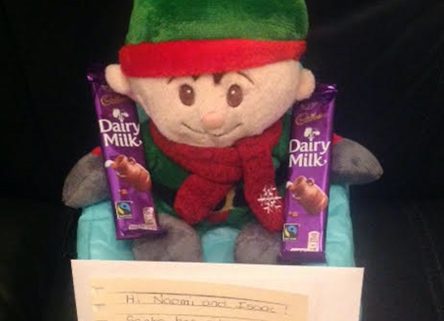
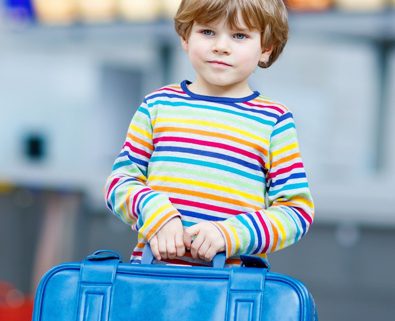
 Tonight, as I sit here writing a plethora of lists for our family holiday travel, I posted a poll to a parenting support group on Facebook asking for tips and tricks for surviving holiday travel with special needs kids. And boy, did they ever come through.
Tonight, as I sit here writing a plethora of lists for our family holiday travel, I posted a poll to a parenting support group on Facebook asking for tips and tricks for surviving holiday travel with special needs kids. And boy, did they ever come through.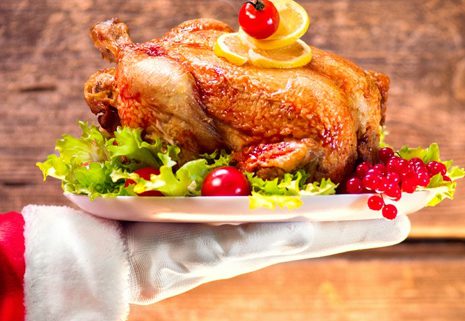
 I could have stopped this title early and just said, “when your child won’t eat.” That is my life, but somehow at Christmas it just seems so much worse. Ask people what they associate with Christmas Day and, after presents, Santa, and perhaps family, many will answer “Christmas dinner.” Advertisers have a field day this time of year, promoting the ideal family Christmas dinner with turkey, roast potatoes, stuffing, and all sorts of vegetables and trimmings.
I could have stopped this title early and just said, “when your child won’t eat.” That is my life, but somehow at Christmas it just seems so much worse. Ask people what they associate with Christmas Day and, after presents, Santa, and perhaps family, many will answer “Christmas dinner.” Advertisers have a field day this time of year, promoting the ideal family Christmas dinner with turkey, roast potatoes, stuffing, and all sorts of vegetables and trimmings.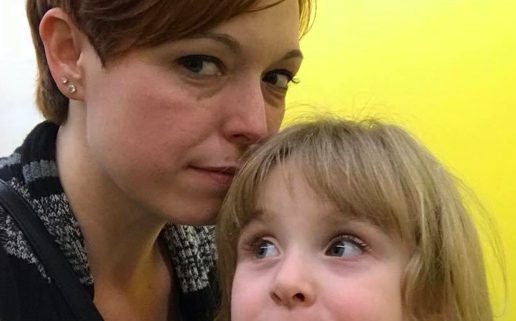
 Bright lights, loud tones or noises, sights that are too overwhelming to focus on. The room, and therefore the world, has erupted into frightening chaos. Your mind and your body react with fight or flight, and in most cases both. You want out, you need to get out, your body can’t handle this overstimulation at all.
Bright lights, loud tones or noises, sights that are too overwhelming to focus on. The room, and therefore the world, has erupted into frightening chaos. Your mind and your body react with fight or flight, and in most cases both. You want out, you need to get out, your body can’t handle this overstimulation at all.
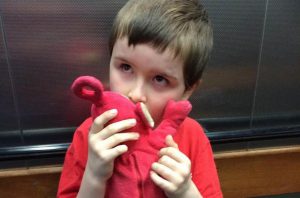 If you were walking home in the dark one night and heard a female screaming for help, would you view those screams as challenging behaviour? What if you were in a hospital and heard a child cry? Would you see that as challenging, or would you be more sympathetic?
If you were walking home in the dark one night and heard a female screaming for help, would you view those screams as challenging behaviour? What if you were in a hospital and heard a child cry? Would you see that as challenging, or would you be more sympathetic?
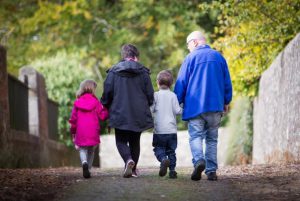 I had a message from a fellow autism parent this week. Two words of that message have impacted me greatly. She wrote:
I had a message from a fellow autism parent this week. Two words of that message have impacted me greatly. She wrote:


 During the month of November, we are reminded about the importance of coming together and celebrating gratitude. In a few weeks, families and friends all over the U.S. will gather around tables full of food and take turns saying what they are thankful for. For families of children with special needs, it can sometimes be difficult to find anything to be grateful about. For me this is especially true. There have been times when I have scoffed (rolled my eyes) at the “Autism Is Awesome” memes on Facebook and grumbled in jealousy over my friends’ neurotypical kids’ achievements. For years I had no joy in my heart and was probably not a joy to be around.
During the month of November, we are reminded about the importance of coming together and celebrating gratitude. In a few weeks, families and friends all over the U.S. will gather around tables full of food and take turns saying what they are thankful for. For families of children with special needs, it can sometimes be difficult to find anything to be grateful about. For me this is especially true. There have been times when I have scoffed (rolled my eyes) at the “Autism Is Awesome” memes on Facebook and grumbled in jealousy over my friends’ neurotypical kids’ achievements. For years I had no joy in my heart and was probably not a joy to be around.
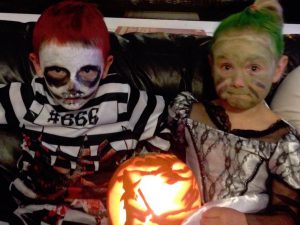 Let’s tackle Halloween in a fun way! I cannot even begin to count how many years Halloween has ended up like a real-life fright night in my house, as I try to get the kids ready for Halloween. I’d rather end up in a pumpkin smoothie than have to go through the rigamarole of taking my kids trick or treating. But it’s not as if we have a choice, is it? So get ready, we must!
Let’s tackle Halloween in a fun way! I cannot even begin to count how many years Halloween has ended up like a real-life fright night in my house, as I try to get the kids ready for Halloween. I’d rather end up in a pumpkin smoothie than have to go through the rigamarole of taking my kids trick or treating. But it’s not as if we have a choice, is it? So get ready, we must!
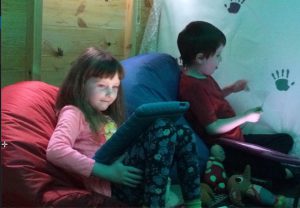 Most parents buy their children clothes, toys and other essential items, and use their garden space for barbecues, swings and kicking a ball about. However, I am an autism parent and that makes me think quite differently at times. Both of my children have significant sensory needs. My son has other complex medical needs and his twin sister has crippling anxiety. Helping them has become a matter of priority for me.
Most parents buy their children clothes, toys and other essential items, and use their garden space for barbecues, swings and kicking a ball about. However, I am an autism parent and that makes me think quite differently at times. Both of my children have significant sensory needs. My son has other complex medical needs and his twin sister has crippling anxiety. Helping them has become a matter of priority for me. I took the twins to some sensory rooms and watched to see what things they enjoyed best. I had our occupational therapist carry out a sensory assessment on them both and then suggest some equipment that might help them.
I took the twins to some sensory rooms and watched to see what things they enjoyed best. I had our occupational therapist carry out a sensory assessment on them both and then suggest some equipment that might help them.